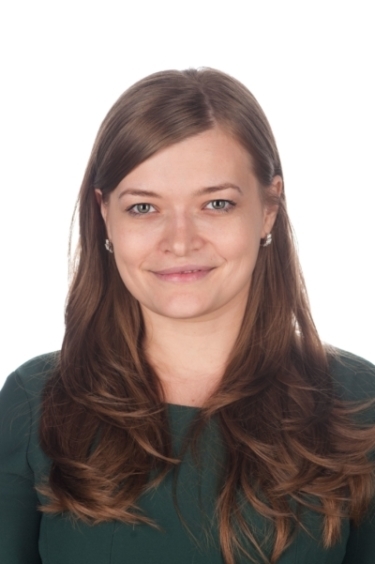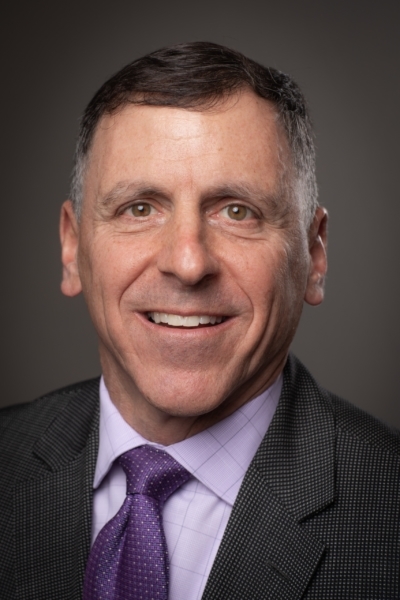
You probably won’t like their advice. They won’t tell you what you want to hear. Their secrets aren’t quick and easy tenets, either. Earning an MBA isn’t always a feel-good experience, Executive MBAs will tell you. The hours are long and the demands are heavy. You’re going to fall short and miss out. Chances are, you’ll harbor doubts, even make excuses.
No, it’s not for everyone. Just ask Shagita Gounden. A South African engineer, she is busy building the world’s largest telescope. Sound daunting? Surprisingly, she found committing to an MBA program equally intimidating. She fretted over the cost and time commitment. She didn’t know exactly what she wanted to do. On top of that, she received mixed messages about returning to school. The decision created discomfort – and that’s why she knew that joining the MBA Class of 2020 was the right choice.

Natalya-Marhiyeva, INSEAD
“Change is uncomfortable,” admits the Cambridge Judge MBA. “When embraced, it is the only path to growth.”
That’s a theme among this year’s Best & Brightest Executive MBAs. It can be called rugged individualism or self-reliance: toughening up and working hard, embracing change and taking action. When it comes to entering an EMBA program, the Class of 2020’s advice is unanimous: the sooner the better.
“Do it! But do it with your eyes open,” writes INSEAD’s Natalya Markhiyeva, a chief commercial officer from Kazakhstan. “Be ready to share and be ready to learn. You will need a lot of self-discipline and a very supportive surrounding. Be ready that your world will change completely and that you will become a different person. There is no way you will stay the same person, and you will have to learn what to do with this new version of yourself.”
“I will share the same advice I was given on day 1,” adds Cornell University’s Daniel Lakoff, an MD who helps oversee operations at Lower Manhattan Hospital. “You will be presented with new ideas and opportunities at a quick pace. Now is not the time to overanalyze or to avoid the opportunity because you are too busy – now is the time to challenge yourself to build and grow. Take the chance and try something new, I guarantee you will not be disappointed.”
What other wisdom would the Class of 2022 share with future MBA candidates? Each year, Poets&Quants publishes profiles of 100 of the Best & Brightest Executive MBAs in the world. As part of the process, P&Qs asks these nominees to share their advice to a candidate looking to enter an executive MBA program. From preparation to academics, here are 12 strategies for making the most from your business school experience.
1) Don’t Seek Perfection: “I learned the lesson that the effort we put in to our work products is our choice, and the outcome is also our choice. Although this might not seem like much, I’ve needed to practice the art of aiming lower – at “good enough” – during my experience at Darden. About halfway through the program, feeling completely exhausted, burnt out, and very grouchy, I realized that I could choose to do less. I didn’t have to ace every exam, to perfect every formula – I could choose to do a “good enough” job. It might seem like something I should have already known, but I didn’t. I realized how little I allow myself to aim lower, and how much I complicate my life trying to bridge the difference between “good enough” and “good” and “perfect”, and how, to me, good has always equaled perfect. At work, this means knowing when to stop, check in with progress, and ask myself and my teams if there is anything substantial to gain by moving past “good enough.”
Tiffany Pillifant, University of Virginia (Darden)
2) Make An Impact: “I would consider a holistic return on investment. Of course the financial consideration is important, but also consider the return on impact– how will it accelerate your ability to increase your impact in your field?”
Sarah Morrill, U.C. Berkeley (Haas)
3) Be Prepared To Be Adaptable: “In order to maintain your career and family life at home, you will definitely need to re-prioritize for the length of the program. Making sure that you have the support of those around you is also crucial—while my wife and I have not yet started a family, I know that several of my classmates were able to succeed to the levels that they did because of the support system around them and the sacrifices that others made to allow them to be a part of the program. Carving out specific time to ensure that you’re getting the most out of the education is also important—being afraid to communicate your new workload to your family and your employer is a mistake.”
Jeff Larkin, Michigan State (Broad)

David Cohn, Ohio State (Fisher)
4) An MBA Is More Than a Credential or Ticket To The C-Suite: “I encourage students to avoid pursuing an executive MBA for the sole purpose of the credentials or to assume an MBA will lead to a C-suite position. “Certainly, the credentials and education can help; however, a promotion will require more than the MBA background. Enter the MBA program knowing you will need to make a concerted effort to challenge your interpersonal skills and grow as a leader. Higher education is a big part of C-suite success, but it’s not the full equation. Pursue your underlying growth over career levels and ladders. Embracing the journey will help you be more well-rounded and prepared for future challenges, which will likely help you to stand out for career advancement opportunities.”
Tammy Hannah, Michigan State (Broad)
“The best advise that I could provide a prospective student is to embrace the opportunity to learn. The EMBA structure provides a remarkable opportunity to take risks in an environment without judgement. This to me is the key to personal growth as an executive and leader. There are so many competing interests in the life of an executive MBA student and thus it is easy to be distracted from the critical learning opportunities. Having a plan for how to manage work and family and still be committed to the EMBA program will ensure the greatest value from the experience.”
David Cohn, Ohio State (Fisher)
4) Don’t Underestimate The Academic Demands: “My best advice is to do your prep work and finish the assigned pre-readings and assignments before you step into the classroom and well in advance. If you don’t, you limit your capacity to keep up with the professor and become the class outlier and bottleneck. You will feel like you are quickly being swept out to sea by a tsunami, drowning in binomial distributions, multicollinearity, and regression formulas. On many occasions, my team and I would be in the library well past midnight, working on the day’s team assignment. Students should not fall into a complacent belief that merely being physically present in the classroom is enough; the program requires your full undivided attention, and your cohort deserves your commitment. Students receive the highest payoff when they can immerse themselves in the “now” and contribute to the compelling classroom discussions.”
Michael Summers, INSEAD
“I would tell the student that you need to be prepared to work two full-time jobs at the same time. That statement sounds much scarier than it actually is because, as the old saying goes, “It you want something done, give it to a busy person.” You will quickly learn how to adapt to the new normal, and you’ll be bettering yourself at the same time. You will have a few moments in the first week where doubt sets in, but you have to fight through that doubt because you can do anything.”
Joseph W. Krause, Rutgers University





Questions about this article? Email us or leave a comment below.